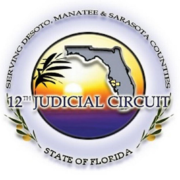Sarasota/Manatee Courts Issue COVID-19 Parenting Procedures
Twelfth Circuit Chief Judge Kimberly C. Bonner last week signed an Administrative Order on Parenting Procedures in the Family Division During COVID-19 Pandemic. The Administrative Order covers divorce and parenting/custody matters in Sarasota, Manatee, and DeSoto Counties.
In essence, the Administrative Order directs parents to follow any parenting plan that has been established and cooperate in making alternate arrangements if exchanges were to take place at now-closed schools or daycare. If a parenting plan has not yet been established, the Order directs parents to permit and facilitate access of children to the other parent. The Administrative Order reads, in part, as follows:
WHEREAS, the World Health Organization has declared the Coronavirus Disease 2019 (COVID-19) a pandemic, the Governor of Florida has declared a state of emergency exists, and the Surgeon General and State Health Officer have declared a public health emergency exists, and the Florida State Courts must take steps to mitigate the effects of COVID-19 on legal proceedings and participants in those legal proceedings; and
WHEREAS, since March 17,2020, the Florida Supreme Court has issued various Emergency Administrative Orders found at https://www.floridasupremecourt.org/Emergency , which include ordering the cancellation or postponement of all non-essential in-person hearings, and this court entered Administrative Order 2020-4.2, setting forth COVID-19 Emergency Procedures and Mission Essential Functions; and
WHEREAS, on April 1, 2020, Florida Governor Ron DeSantis entered Executive Order 20-91, referred to as a “Safer at Home” order, which orders all persons in Florida to limit their movements and personal interactions outside of their home to only those necessary to obtain or provide essential services or conduct essential activities; and
WHEREAS, it is necessary to reduce the number of “emergency” filings and hearings in family division cases until non-essential in-person hearings resume; and
WHEREAS, it is in the best interests of the parties and child(ren) that parents continue to perform their duties and responsibilities of co-parenting, share the additional responsibilities of parenting through this time, and that the parties comply with all existing court orders and court rules; and
NOW THEREFORE, pursuant to the authority vested in me as Chief Judge of the Twelfth Judicial Circuit of Florida, under Rule 2.215 of the Florida Rules of Judicial Administration, it is hereby ORDERED:











